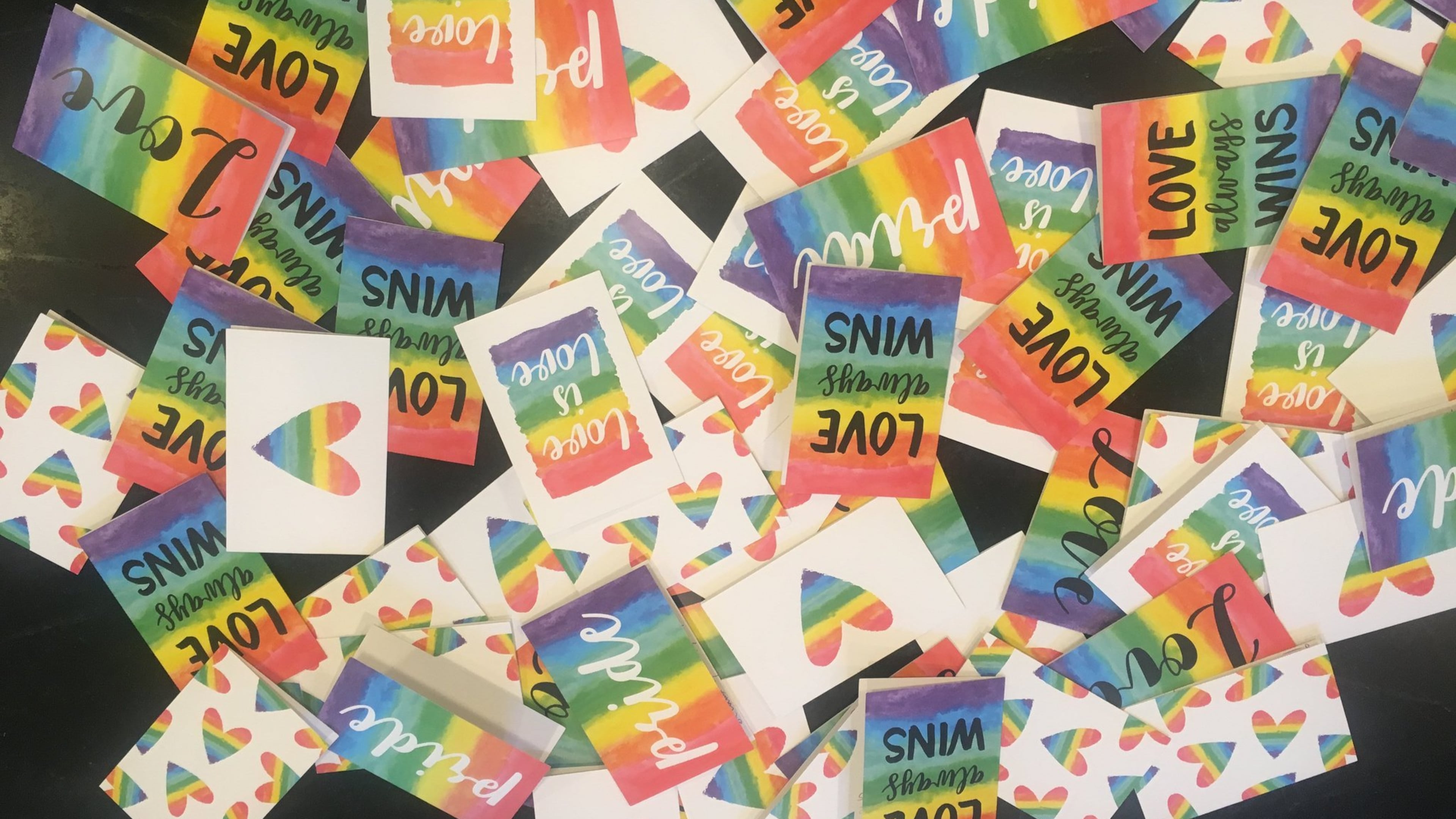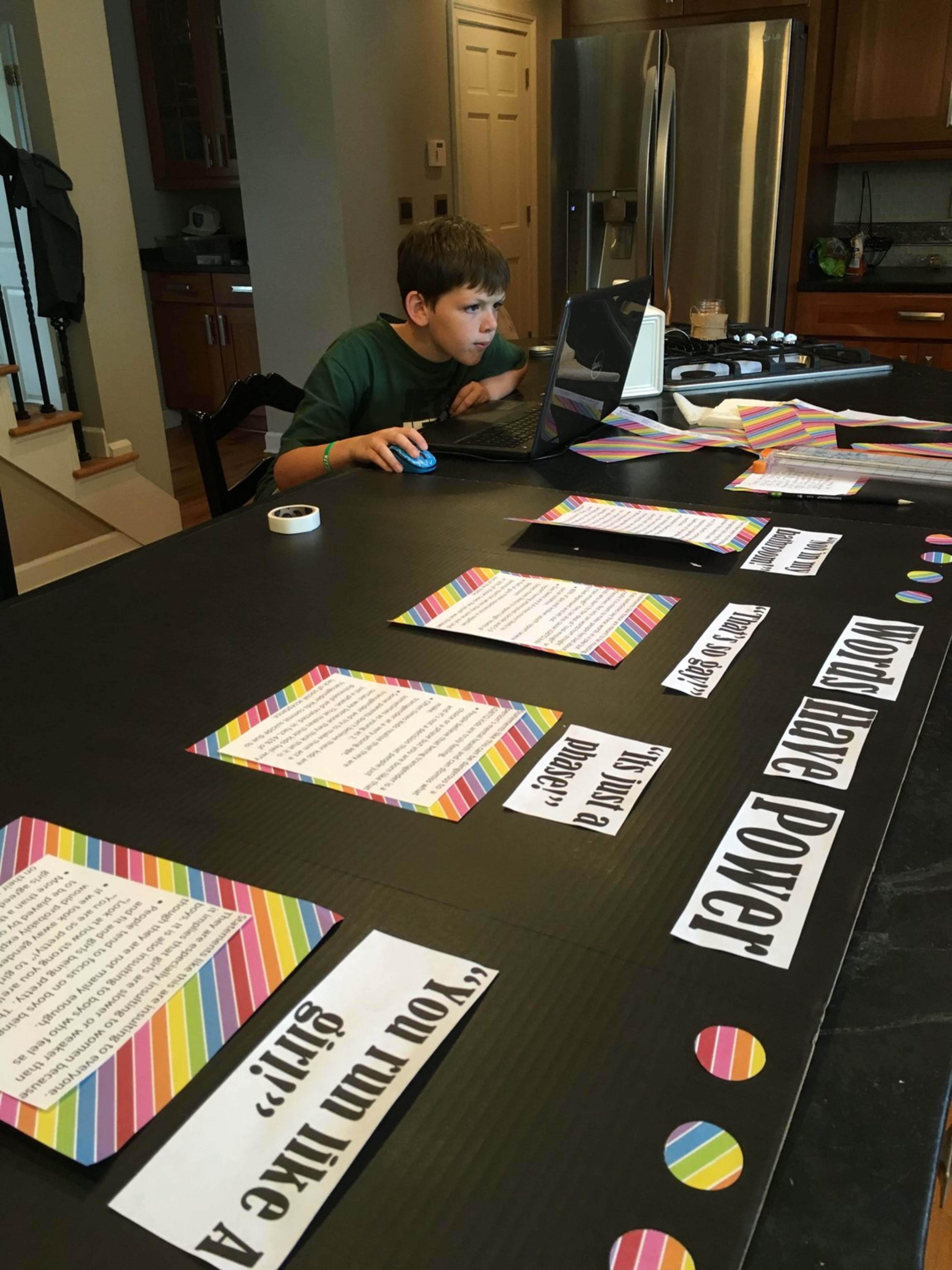Please tell me: Who do you think is the good Samaritan in this tale?

I might have dismissed her judgment of me out of hand, but she called me sister.
Sister as opposed to racist, like so many others. Sister instead of some other rather graphic label. She called me Sister in Christ.
Sisters who are polar opposites apparently when it comes to loving your neighbor as yourself.
It rang like old news. It wasn’t the first time someone called into question my Christianity, not just because of my position on issues but any show of anger or disapproval.
“I thought she was Christian,” I once overheard an editor say to a colleague.
Now a woman seemed to think a tale about a 10-year-old’s decision to recruit his classmates and teachers to write “love notes” to transgender youths was a betrayal of my faith.
“Scripture is very clear about the approval by a believer of sexual sin in others,” she wrote. “Your sweeping acceptance of every sexual identity and issues surrounding it is troubling.”
While I hardly disagree with her that we live in a spiritually dangerous and depraved time; that truth is regarded as error and error as truth, as she put it, I will never believe that sharing Bennett Stone’s story somehow means I have been deceived; that I’m somehow giving people license to sin.
And if you’re wondering whether I believe homosexuals are living in sin, it really doesn’t matter what I think. I just know Christians are called to love our neighbors as ourselves.
But let me back up.
I introduced Bennett, who lives in Marietta and attends school in Roswell, to you back in October after meeting him and his mom to talk about a school assignment in which he learned that 41 percent of transgender youths try to commit suicide.

Filled with compassion for them and in keeping with his assignment, Bennett wanted to do something he thought would help. He recruited his teachers and classmates to write “love notes” to them and got close to a hundred responses. He then decided to deliver the notes to Jeff Graham at Georgia Equality, an advocacy group for the LGBTQ community.
Graham, executive director of the nonprofit, was so impressed, he decided to launch an online campaign inviting the rest of us to do the same.
When he told me about Bennett’s efforts, I was moved, too, for a couple of reasons.
One, I was impressed by Bennett’s compassion for peers who were different from him. Two, I realized it took courage to stand with a group who many still believe don’t deserve to be loved.
The reader, though very polite and measured in her tone to me, wasn’t impressed with Bennett or me. But unlike Bennett, she was unwilling to assign her name to her evaluation of us.
“Be vigilant, Gracie, that you don’t be deceived into accepting untruth in your desire to be welcoming and loving,” she wrote. “I know that if you are truly born again and indwelled by the Holy Spirit, there’s an unsettling in your conscience over this issue.”
No, on this issue, my conscience is clear.
I am, however, bothered by Christians who say writing about homosexuals or transgender people or extending to them the same love and compassion I have for myself somehow makes me less Christian. Christianity at its core is about a relationship. Do I believe Jesus was the son of God? Do I believe he paid the debt for my sin, that he was crucified and, on the third day, rose from the grave?
I believe all those things. While I am not perfect, my relationship is intact.
In a second email to me, my “sister in Christ” went even further:
“As a columnist who is an unabashed Christian, you are approving behavior which God calls sin and disseminating that approval to thousands of readers who may wrongly assume that yours is the biblical position!” she wrote. “Please choose who you want to be IN PRINT: a human interest columnist or a Christ follower boldly writing the truth … As such a gifted writer maybe it’s time for a career change or a sabbatical searching for truth.”
When I met Bennett and his mom, our conversation was centered around the school assignment and his classmates’ response. Yes, he knows a student in his school who is transgender, and like most of us, he has family members and friends who are gay, but we didn’t linger on those facts.
I was more curious about the condition of this kid’s heart. He seemed to understand, better than a lot of adults, the message Jesus sought to impart in the parable of the good Samaritan: “Love your neighbor as yourself.”
RELATED: Liberal or conservative? Religious outlook can blur the answer
When asked who is my neighbor, Jesus told the story of a man who was attacked by robbers and left half dead, but feel free to substitute a transgender youth so bothered by our unwillingness to accept them for who they are that they’d rather die.
Two religious leaders — a priest and a Levite — passed the injured man without offering to help. You can substitute those folks you know who are so heavenly minded, they’re no earthly good here. As spiritual leaders, the priest and the Levite should have been the first to stop to help someone suffering, but they didn’t.

Then, finally, a Samaritan comes along, and ignoring the fact that Jews and Samaritans were enemies, had compassion on the man. He bandaged his wounds and carried him to the innkeeper to look after him.
That’s what Bennett Stone did. He did what he could to bandage the wounds of suffering transgender youths.
As he finished his parable, Jesus asked another question: “Which of these three do you think was a neighbor to the man who fell into the hands of robbers?”
The expert in the law replied, “The one who had mercy on him.”
Who then, would you say, is neighbor to hurting transgender students: Bennett Stone or my dear sister in Christ?
Find Gracie on Facebook (www.facebook.com/graciestaplesajc/) and Twitter (@GStaples_AJC) or email her at gstaples@ajc.com.


